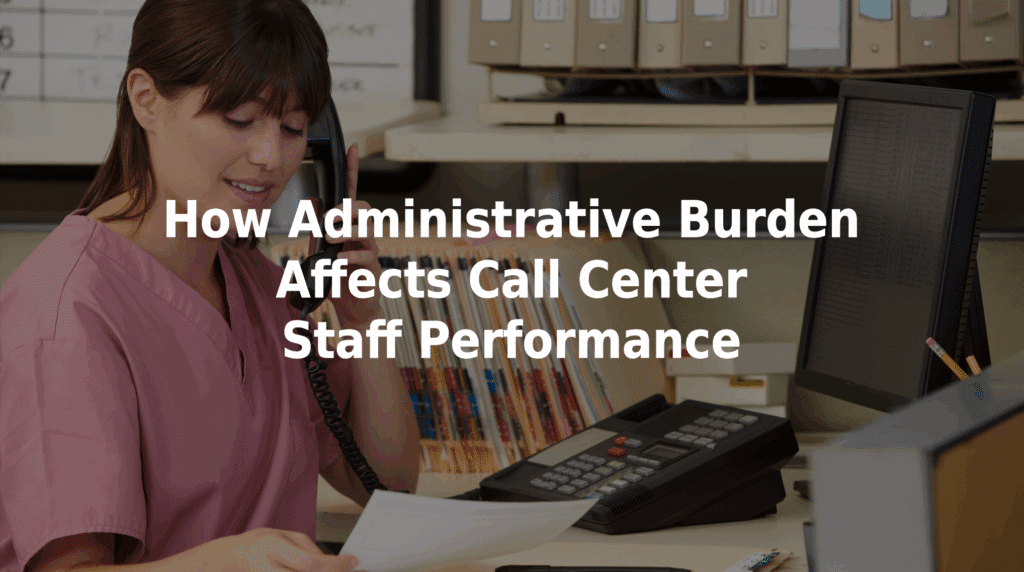How Administrative Burden Affects Call Center Staff Performance
Many health systems depend on medical call centers for patient intake, yet they also face growing challenges with call center staffing, efficiency, and performance. One of the biggest contributors to these problems is being overworked. For patient access managers, understanding how administrative burden affects call center staff performance is key to reducing intake errors and improving health outcomes.
The Growing Burden in Healthcare Call Centers
Nonclinical operators typically handle more than just scheduling. They’re also in charge of:
- Patient symptom intake.
- Prescription refill requests.
- Appointment follow-ups.
- Messages for care coordination.
As call volumes increase, handling patient requests manually and with repetitive documentation can easily become staggering. While we often think about doctors having to spend a great deal of time managing EHR paperwork outside of office hours, intake operators also suffer from bottlenecking — and, ultimately, poor communication and practice liability.
Ways Administrative Burden Hurts Staff Performance
1. Increased Error Rates
When operators are rushed, they’re more likely to miss important details and document messages incorrectly.
2. Longer Call Times and Delayed Patient Responses
Manual message-taking processes can lead to lengthy patient interactions and long hold queues — frustrating for both staff and patients.
3. Higher Staff Turnover and Burnout
Excessive administrative work leads to stress and fatigue, increasing turnover rates and making it harder to maintain a well-trained, consistent team.
4. Inconsistent Communication Across Departments
Team members who are stressed are more likely to become distracted, cut corners, forget intake steps, and miscommunicate patient concerns. All of these reduce the quality and effectiveness of care coordination.
5. Less Focus on Patient Service Quality
When operators spend more time and energy on navigating systems than they do on listening to patients, service quality suffers.
Solutions to Reduce Administrative Burden
- Leverage Automated Intake: Allow patients to submit their own concerns through dynamic intake forms.
- Integrate Systems to Avoid Redundant Data: Look for intake tools that can share files directly with your EHR so that patients’ needs are easier to evaluate.
- Monitor Performance Metrics Regularly: Track staff workload, call times, and message quality to identify areas for improvement.
- Provide Ongoing Staff Training and Support: Empower team members with the tools and knowledge to manage administrative tasks more efficiently.
How MedMessage Automate Benefits Intake
TriageLogic’s MedMessage Automate reduces administrative burden by allowing patients to submit their concerns directly to their providers through an AI-powered, secure chat. Our system guides patients with symptom-based prompts that lead to accurate, structured, and complete messages for your team to review — minimizing manual intake and the chances for error.
Key benefits include:
- Reduced call volume and staff fatigue.
- Improved message accuracy and escalation protocols.
- Faster patient response times.
- Increased staff satisfaction and retention.
- Scalable workflows that adapt to fluctuating demand.
Empower Your Call Center With a Smart Intake Tool
Ready to advance your intake process and staff performance? Contact us today to talk about a program!

